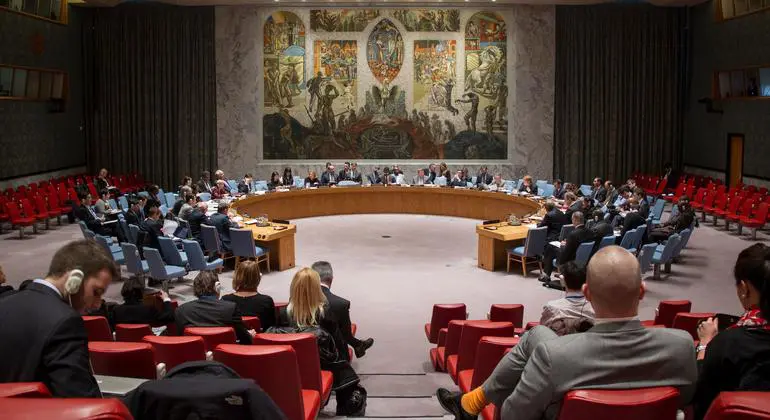Dr. Roopa Dhatt, Executive Director of Women in Global Health, and two scientists who have developed COVID-19 vaccines – Professor Sarah Gilbert of Oxford University and Dr. Özlem Türeci of German company BioNTech, one of the vaccine pioneers – were guest speakers at the bi-weekly briefing by the World Health Organization (WHO) held on Monday, International Women’s Day.
WHO chief Tedros Adhanom Ghebreyesus said the pandemic has disproportionately affected women, who have faced challenges ranging from rising violence, to higher levels of unemployment. And although women make up the majority of health workers globally, or 70 per cent, they only account for a quarter of those in leadership roles.
Last month, the UN agency launched the Gender Equal Health Initiative whose objectives include boosting the proportion of women health leaders, promoting equal pay, and ensuring safe and decent working conditions for health workers, which includes having access to personal protective equipment (PPE) and vaccines.
Inequality at the table
Dr. Dhatt, a physician in the United States, spoke of her “rollercoaster” year treating COVID-19 patients while also working to expand her organization and manage duties at home.
She warned that the fundamental flaws and inequalities which the pandemic has exposed must be resolved urgently before the next global crisis.
“The extraordinary work done by women in the health and care workforce in this pandemic has not earned them an equal seat at the decision-making table, and as a result, we have all lost out on their talent and expertise”, she said.
Although proud of her contributions, Dr. Dhatt said like many health professionals, she felt furious that richer nations were not prepared for the pandemic “even though it was not unexpected”.
She was also angry that her sickest patients tend to be black or Latina “and this is not new”, she said, adding “COVID-19 does not discriminate, but societies do.”
Pandemic hits career prospects
Professor Gilbert from Oxford University in the United Kingdom previously worked on vaccines for influenza, Ebola and MERS, which was also caused by a coronavirus.
She acknowledged women’s “enormous contribution” during COVID-19, including in comprising two-thirds of the team that developed the Oxford/AstraZeneca vaccine.
“However, of the senior positions in the team, only one-third are women”, she said, emphasizing that more needs to be done so that women can progress in the field and other disciplines.
“There are concerns that the pandemic has had more of an effect on the careers and livelihood of women than men, and as we begin to make our plans for recovery, we must not neglect this,” she stated.
Professor Gilbert reported on the Oxford/AstraZeneca vaccine’s effectiveness in protecting older populations, but pointed to the work ahead in assessing its ability against COVID-19 variants. Preparations are being made to update the vaccine, if necessary.
Increase vaccine partnerships
“As vaccinations are rolled out around the world, with the most vulnerable being protected first, we need to continue to monitor virus transmission and apply all available measures to reduce it to protect those not yet vaccinated and reduce the chances of new variants arising”, she recommended.
“And to increase the amount of vaccine doses that can be delivered across the world, I encourage vaccine manufacturers to form new partnerships in diverse geographical locations to manufacture, fill and distribute vaccines that are already approved.”
As a self-described “wanderer between three worlds” – medicine, immunology and entrepreneurship, Dr. Türeci has witnessed lack of gender equality “every day”.
‘Making the seemingly impossible, possible’
But things are different at BioNTech, the company she co-founded with her husband, Professor Uğur Şahin, as women make up 54 per cent of employees and nearly half of the top management.
“We like to think that being a gender-balanced team has been critical for making the seemingly impossible possible: to develop the COVID-19 vaccine within 11 months without shortcuts,” she said.
The BioNTech vaccine, developed with pharmaceutical giant Pfizer, was the first-ever authorized for use. Together with the Oxford/AstraZeneca vaccine, it is part of the UN-backed COVAX initiative that is working to make inoculation accessible to all people everywhere.
As more vaccines come on stream, Dr. Türeci underscored the goal of achieving herd immunity, or widescale population protection, through equitable rollout worldwide.
“’Mission Herd Immunity’ means that no one will be safe until everyone is safe: across genders, ethnicities, economies and nations”, she said, outlining the need for collective action in areas such as ramping up vaccine production, improving supply chains and securing funding.





